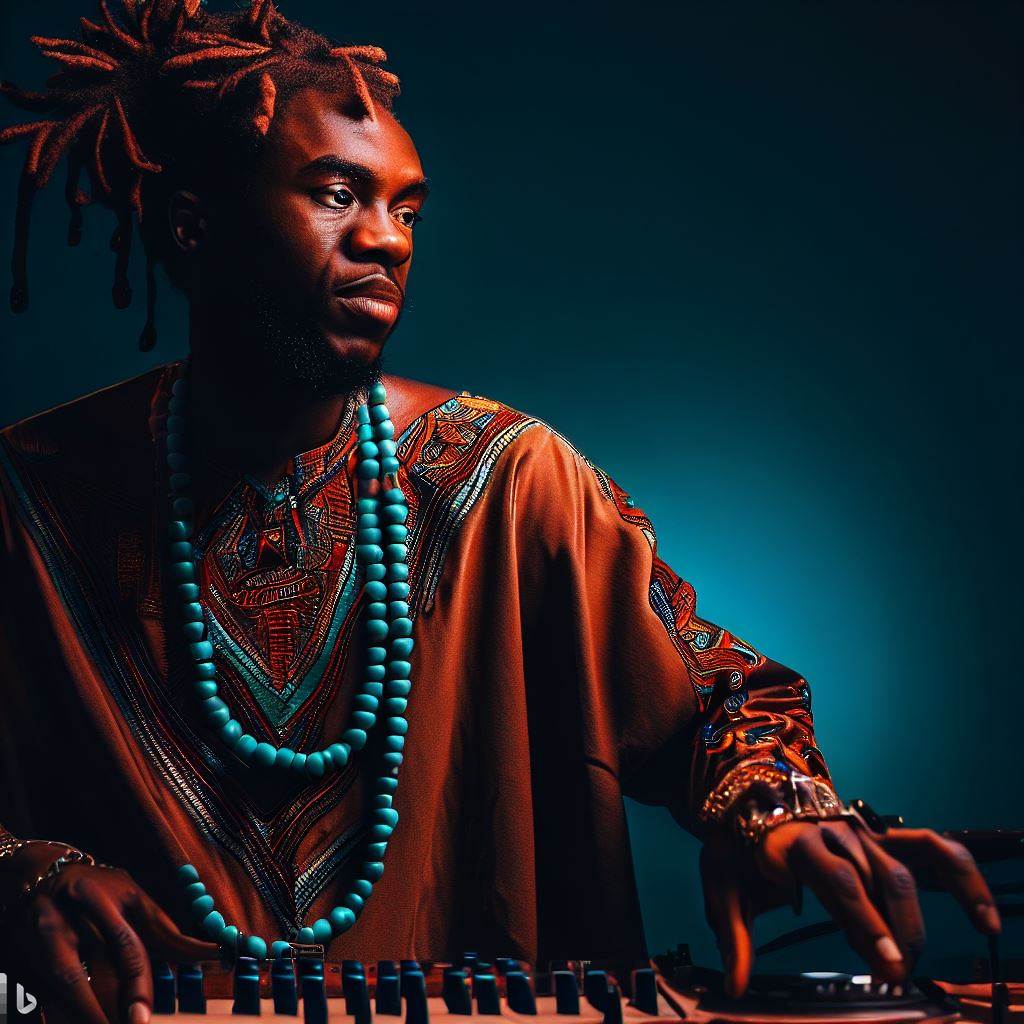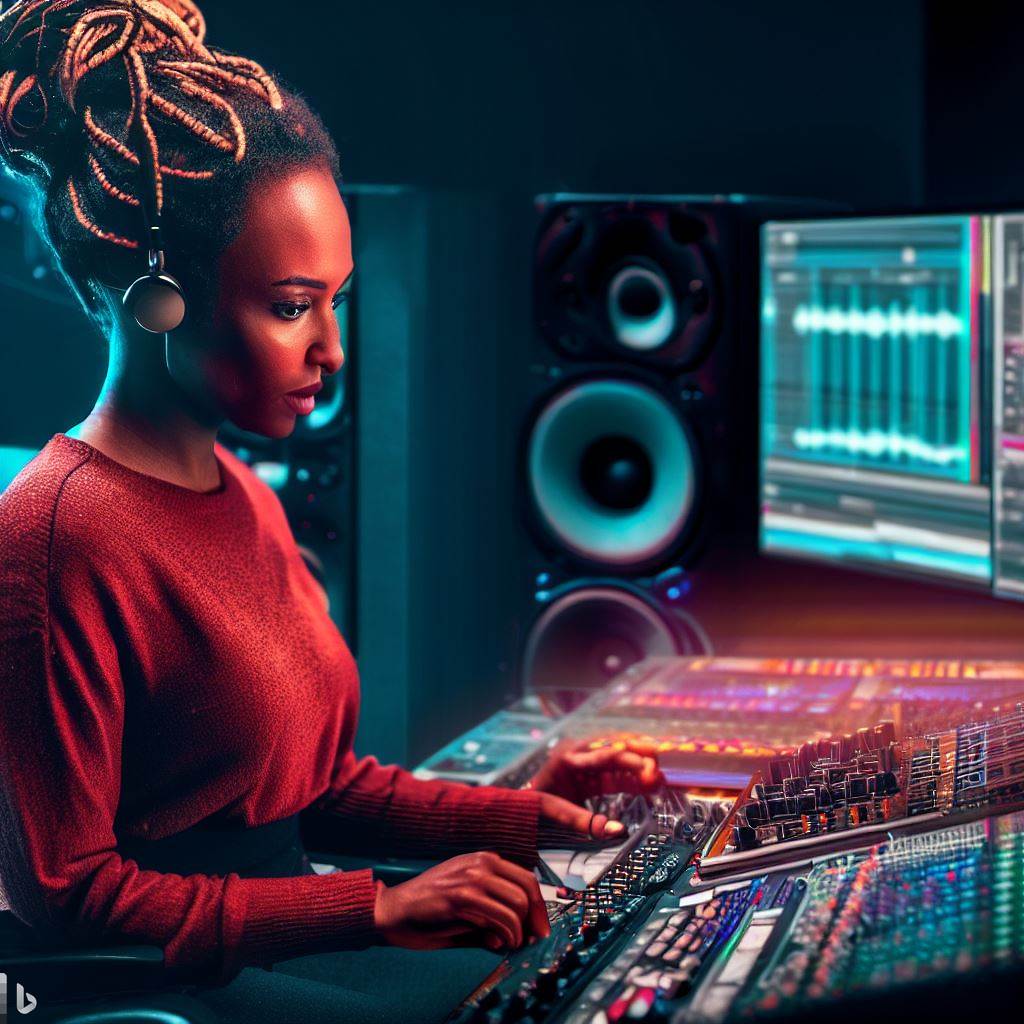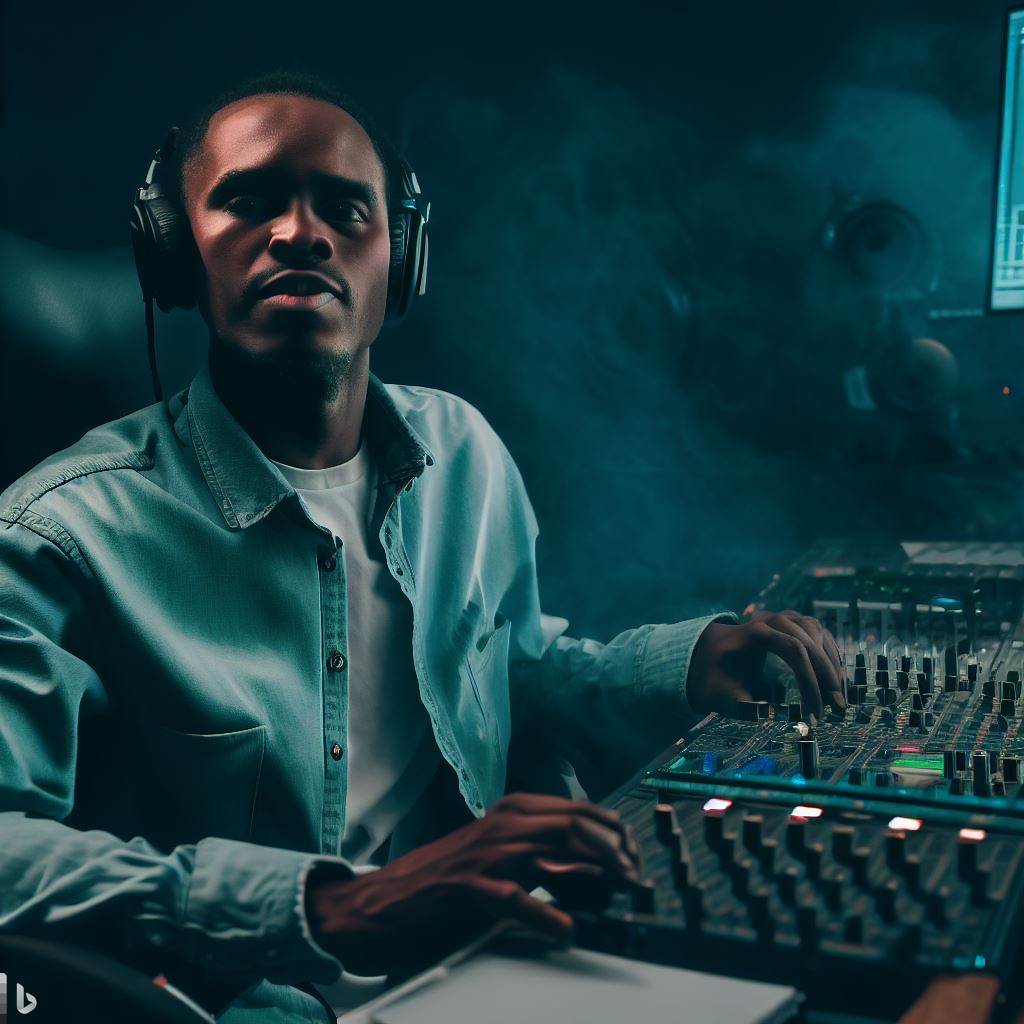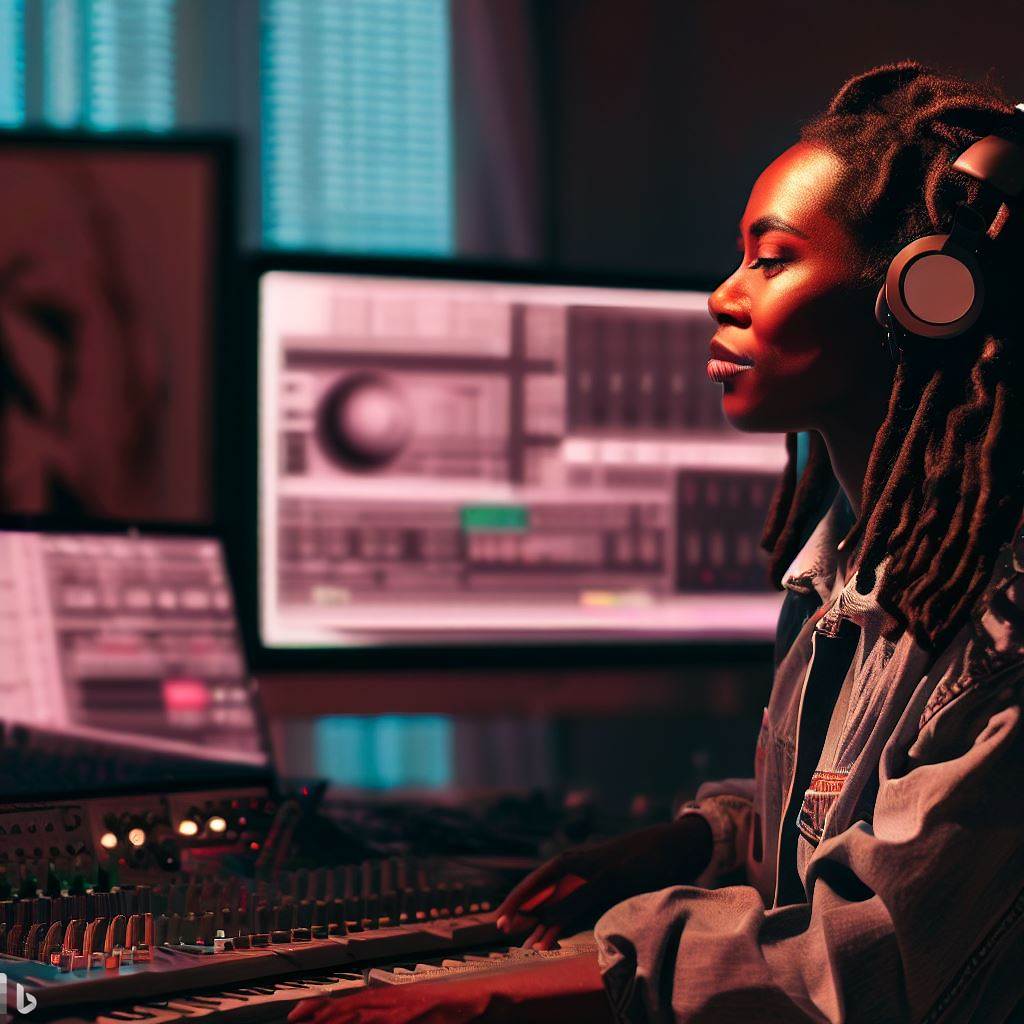Introduction
A. Brief overview of Nigeria and its cultural diversity
Nigeria, a country known for its diverse ethnic groups and cultural traditions, plays a significant role in shaping global costume design trends.
B. Definition of costume design and its significance in global fashion trends
Costume design refers to the art of creating clothing and accessories to represent a specific character or culture in various forms of entertainment.
Costume design is a significant aspect of global fashion trends
It holds great significance in the world of fashion as it reflects the values, traditions, and aesthetics of different societies.
C. Nigeria’s growing influence in the fashion industry
Nigeria, with its vibrant and diverse culture, has been making waves in the fashion industry in recent years.
Nigerian designers and fashion influencers have been gaining international recognition for their unique and innovative designs inspired by the country’s rich tradition.
D. Thesis statement: Nigeria’s cultural heritage shapes global costume design trends.
- From traditional attires like the agbada and gele to contemporary styles infused with Nigerian fabrics and motifs, Nigeria’s fashion industry continues to captivate global audiences.
- The rise of Nigerian designers such as Lisa Folawiyo and Deola Sagoe has propelled Nigeria’s fashion scene onto the international stage, influencing global costume design trends.
- Many designers from around the world now look to Nigeria for inspiration, incorporating African prints, bold colors, and intricate patterns into their collections.
- Nigerian fashion shows and events, such as Lagos Fashion Week, have also become major platforms for showcasing emerging talents and promoting the country’s unique fashion aesthetic.
Basically, Nigeria’s cultural heritage significantly impacts global costume design trends.
The country’s rich traditions, diverse ethnic groups, and innovative fashion industry have contributed to shaping the global fashion landscape.
As Nigerian designers continue to push boundaries and showcase their creativity, their influence on global costume design trends will only grow stronger.
Historical Background of Nigerian Costume Design
A. Overview of Traditional Nigerian Attire and Its History
Traditional Nigerian attire boasts a rich tapestry of colors, fabrics, and designs.
These garments have deep roots in the country’s diverse cultural heritage.
- Vivid Colors: Nigerian attire is renowned for its vibrant hues, symbolizing various aspects of life such as joy, spirituality, and social status.
- Fabrics: The use of traditional textiles like Aso-oke, Ankara, and Adire is integral to Nigerian clothing.
- Styles: Traditional Nigerian attire includes flowing robes, intricately draped wrappers, and intricately adorned headgear.
B. Mention of Indigenous Tribes and Their Unique Clothing Styles
Nigeria’s diverse landscape is mirrored in its indigenous tribes, each with distinct clothing traditions:
- Yoruba: The Yoruba people’s clothing is characterized by Aso-oke fabric and Gele headgear, reflecting their intricate artistry.
- Igbo: Igbo attire features colorful wrappers and blouses, adorned with ornate beadwork and accessories.
- Hausa: Hausa clothing emphasizes modesty, with flowing gowns and turbans for men, and flowing hijabs and gowns for women.
C. Influence of Colonization on Nigerian Costumes
Colonization left an indelible mark on Nigerian clothing:
- British Colonial Influence: British colonialism introduced tailored suits and dresses, reshaping Nigerian fashion sensibilities.
- Syncretism: The blending of traditional and Western attire became a symbol of cultural identity.
D. Transition from Traditional to Modern Costume Design
Nigeria’s clothing evolution mirrors its dynamic society:
- Urbanization: Urban centers embraced Western fashion, leading to a fusion of traditional and modern elements.
- Globalization: The ease of information exchange allowed Nigerians to embrace international fashion trends.
E. Rise of Nigerian Fashion Industry and Designers
The Nigerian fashion industry has burgeoned in recent years:
- Fashion Weeks: Lagos Fashion Week has gained international recognition, showcasing Nigerian talent.
- Designers: Icons like Deola Sagoe, Mai Atafo, and Lisa Folawiyo have taken Nigerian fashion to the global stage.
- African Influence: Nigerian designers have infused African aesthetics into global fashion trends.
To summarize, Nigeria’s influence on global costume design trends is rooted in its diverse cultural heritage, the impact of colonization, and its vibrant transition from traditional to modern attire.
The rise of Nigerian fashion designers and their global recognition further cements the nation’s position as a formidable force in the world of fashion.
Read: Inside the Creative Process of Nigerian Music Producers
Elements of Nigerian Costume Design
Nigeria’s rich cultural heritage radiates through its distinctive influence on global costume design trends.
The nation’s diverse ethnic groups contribute to a captivating tapestry of style.
Here are key elements that define Nigerian costume design:
A. Adire and Ankara Fabrics
- Adire: Indigo-dyed fabric with intricate tie-dye techniques.
- Ankara: Vibrant, wax-resistant prints reflecting Nigerian traditions.
B. Traditional Accessories
- Beads: Adornments representing wealth, social status, and spirituality.
- Cowries: Ancient currency turned into intricate jewelry and embellishments.
- Headgear: Gele and fila, elaborate headpieces symbolizing identity and culture.
C. Color Symbolism and Importance
- Vibrant Palette: Reflects energy, optimism, and diversity of Nigerian society.
- Symbolic Meanings: Colors convey emotions, social messages, and cultural values.
D. Traditional Garment Styles
- Agbada: Grand flowing robe worn by men, showcasing elegance and authority.
- Buba: Loose-fitting blouse paired with wrappers, embodying comfort and grace.
- Iro: Wrapped skirt worn by women, combining tradition with contemporary aesthetics.
E. Indigenous Patterns and Motifs in Modern Designs
- Fusion Fashion: Contemporary outfits infused with tribal motifs and designs.
- Adapting Tradition: Incorporating elements like embroidery into modern silhouettes.
Nigerian costume design captivates the world due to its boldness, vibrancy, and cultural significance.
The interplay of colors, fabrics, and accessories embodies Nigeria’s history and evolution.
This intricate blend is not merely about attire; it’s a storytelling medium, preserving heritage while embracing modernity.
Read: Succeeding as a Female Music Producer in Nigeria’s Industry
Impact of Nigerian Costume Design on Global Fashion Trends
A. Popularization of Nigerian fashion through social media
Nigeria’s vibrant and eclectic fashion scene has gained significant traction on social media platforms.
Influencers, designers, and fashion enthusiasts alike have used platforms like Instagram and Twitter to showcase Nigerian designs, leading to increased global recognition and popularity.
B. Collaboration between Nigerian and international designers
Nigerian designers have increasingly collaborated with international fashion houses, resulting in a fusion of traditional Nigerian aesthetics with global fashion trends.
These collaborations have not only elevated the reputation of Nigerian designers but have also introduced Nigerian fashion to a wider audience around the world.
C. The growing demand for African-inspired clothing
In recent years, there has been a surge in the demand for African-inspired clothing, with Nigerian fashion at the forefront.
The vibrant colors, bold prints, and intricate details of Nigerian garments have captivated fashion enthusiasts across the globe, leading to an increased incorporation of African-inspired elements in mainstream fashion.
D. Influence of Nigerian traditional attire on runway fashion
Nigerian traditional attire, such as the agbada, gele, and Ankara prints, have made a significant impact on runway fashion.
International designers find inspiration in Nigerian traditional wear, integrating embroidery, prints, and loose silhouettes in collections, elevating Nigerian fashion globally.
E. Nigerian celebrities and influencers promoting local fashion brands
Nigerian celebrities and influencers have played a crucial role in promoting local fashion brands and designers.
By adorning themselves in Nigerian fashion, they not only celebrate their culture but also influence global fashion trends.
Their endorsement has created a ripple effect, further elevating Nigerian fashion’s influence on a global scale.
In a nutshell, Nigerian costume design has had a significant impact on global fashion trends.
Nigerian fashion gains popularity on social media, collaborations with international designers grow, African-inspired clothing sees demand, and local brands flourish.
Read: The Role of Journalists in Nigeria’s Election Coverage
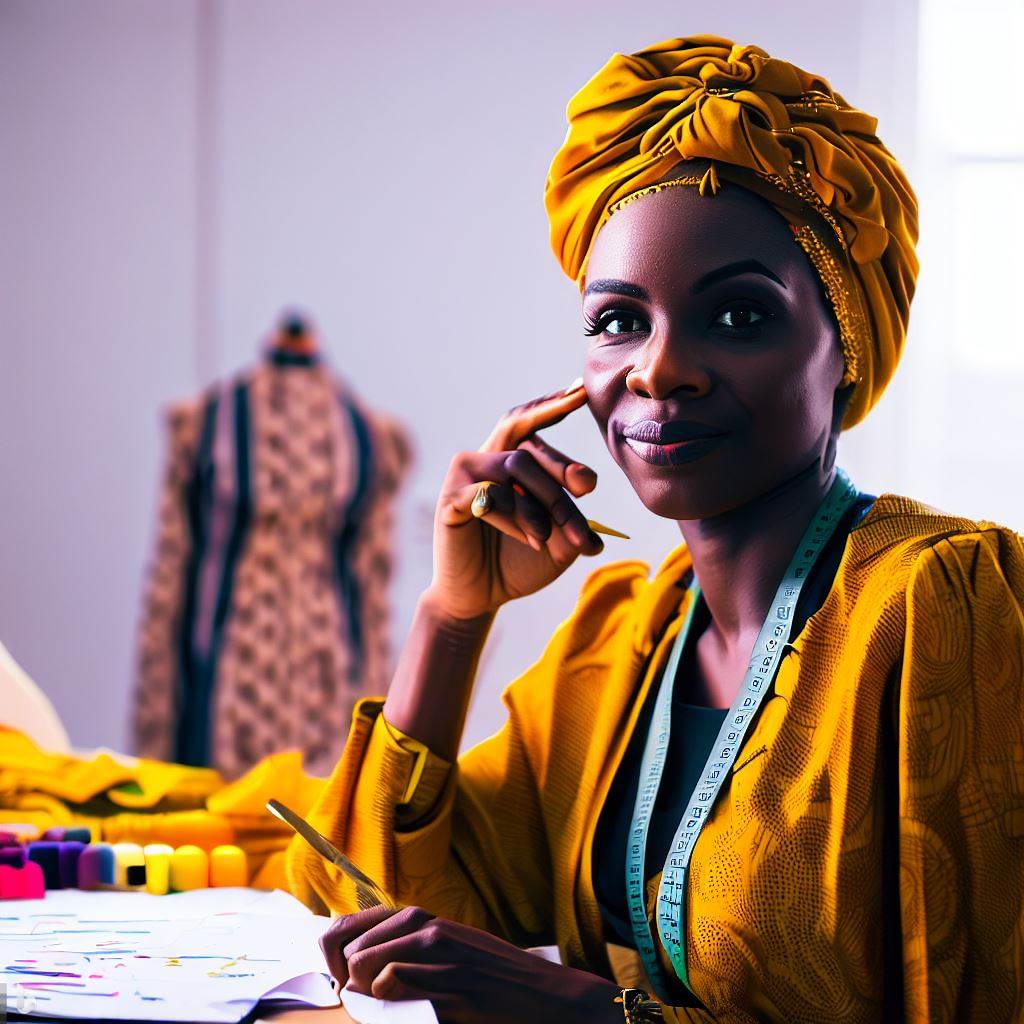
Nigerian Fashion Weeks and Expos
A. Lagos Fashion Week and its international recognition
Nigeria’s fashion industry has gained global recognition through events like Lagos Fashion Week.
- The week-long event showcases the best of Nigerian fashion, attracting both local and international designers, and fashion enthusiasts.
- Lagos Fashion Week, held annually in Nigeria’s bustling city of Lagos, is a major platform for designers to showcase their talent.
- The event features runway shows, workshops, and panel discussions, providing a comprehensive experience for industry professionals and fashion enthusiasts.
- This renowned fashion week has attracted international attention and has become a key event on the global fashion calendar.
- It serves as a platform for emerging and established designers to present their collections to a diverse audience, including buyers, journalists, and fashion influencers.
- The event offers a unique opportunity for Nigerian designers to expand their reach beyond the local market.
- It serves as a launching pad for these designers to connect with global fashion communities, allowing them to gain international exposure and recognition.
B. Role of fashion expos in showcasing Nigerian costume design abroad
Fashion expos play a crucial role in promoting Nigerian costume design internationally.
- These expos provide a platform for designers to exhibit their creative work to a wider audience, including international buyers and fashion industry professionals.
- By participating in international fashion expos, Nigerian designers can reach a global market and establish valuable connections.
- This exposure enables them to explore new opportunities, expand their customer base, and increase their brand visibility on a global scale.
- Fashion expos also facilitate cultural exchange between Nigeria and other countries.
- They allow international audiences to experience the rich heritage and diversity of Nigerian costume design, fostering appreciation and understanding of Nigerian culture.
C. Spotlights on Nigerian designers making waves globally
Several Nigerian designers have achieved significant success on the global stage, contributing to the country’s influence on global costume design trends.
One such designer is Lisa Folawiyo, known for her label Jewel by Lisa.
Her innovative use of traditional West African fabrics, combined with contemporary designs, has garnered international acclaim.
Celebrities like Lupita Nyong’o and Solange Knowles have worn her creations, further enhancing her global reputation.
Another prominent Nigerian designer is Maki Oh, founded by Amaka Osakwe.
Her brand has gained recognition for its unique blend of traditional Nigerian textiles and modern silhouettes.
Maki Oh has been featured in major fashion publications and has dressed influential figures such as Michelle Obama.
These designers, among many others, have successfully bridged the gap between Nigerian fashion and global markets.
Their unique designs showcase the rich cultural heritage of Nigeria, while also appealing to international fashion tastes.
D. Importance of these events in fostering global connections and collaborations
Nigerian fashion weeks and expos play a vital role in fostering global connections and collaborations within the fashion industry.
- By showcasing Nigerian costume design on an international stage, these events create opportunities for designers to collaborate with international brands and designers.
- This collaboration allows for the exchange of ideas, techniques, and resources, leading to the development of innovative and diverse fashion collections.
- Furthermore, these events facilitate knowledge sharing and skill development.
- Workshops and panel discussions provide a platform for industry professionals to share insights and experiences, promoting growth within the Nigerian fashion industry.
- By fostering global connections, Nigerian fashion weeks and expos contribute to the growth of the country’s fashion industry and its overall economy.
- They attract international attention and investments, leading to job creation and increased export opportunities for Nigerian designers.
In general, Nigerian fashion weeks and expos, such as Lagos Fashion Week, play a crucial role in showcasing the country’s costume design trends globally.
These events provide a platform for designers to gain international recognition, foster global connections, and collaborate with industry professionals.
With the success of Nigerian designers on the global stage, Nigeria’s influence on global costume design trends continues to grow.
Read: Exploring the Path: Becoming a Music Producer in Nigeria
Challenges and Opportunities for Nigerian Costume Designers
A. Lack of infrastructure and resources for sustainable production
Nigerian costume designers face a significant challenge due to the lack of proper infrastructure and resources required for sustainable production.
This includes access to reliable electricity, advanced machinery, and adequate workspace to create costumes efficiently.
The absence of these essential elements hinders the growth and development of the Nigerian costume design industry.
However, despite these challenges, Nigerian designers have shown immense creativity and resourcefulness, often finding innovative solutions to work around infrastructure limitations.
B. Intellectual property theft and plagiarism concerns
Nigerian costume designers also face the ongoing issue of intellectual property theft and plagiarism.
There have been cases where international designers have appropriated designs inspired by Nigerian cultural heritage without giving proper credit or remuneration.
This not only undermines the hard work and creativity of Nigerian designers but also risks diluting the cultural significance of these costumes.
Efforts need to be made to raise awareness and actively protect Nigerian designers’ intellectual property rights.
C. Efforts to protect Nigerian fashion designs and cultural heritage
In recent years, there have been efforts to protect Nigerian fashion designs and cultural heritage.
The Nigerian Copyright Commission (NCC) has taken steps to enforce laws against intellectual property theft and plagiarism.
Designers are now encouraged to register their designs, ensuring legal protection and recourse in case of infringement.
Additionally, organizations such as the Nigerian Export Promotion Council (NEPC) are working to promote Nigerian fashion globally while safeguarding its cultural significance.
D. Potential economic benefits of promoting the Nigerian fashion industry
Despite the challenges faced by Nigerian costume designers, there are significant economic benefits to be gained by promoting the industry.
- By investing in infrastructure and resources, Nigeria could become a major hub for costume design production, attracting international collaborations and partnerships.
- This would lead to job creation, increased exports, and a boost to the economy through revenue generated from costume design exports.
- Promoting Nigerian fashion globally would not only improve the financial well-being of individual designers but also contribute to the overall economic growth of the country.
Generally, Nigerian costume designers face several challenges posed by the lack of infrastructure and resources, as well as the threat of intellectual property theft and plagiarism.
However, efforts to protect Nigerian fashion designs and cultural heritage, coupled with the potential economic benefits, provide a ray of hope for Nigerian designers.
With proper support and recognition, Nigerian costume designers can continue to make significant contributions to the global costume design industry.
Read: The Future of Nigerian Journalism in a Digital Age
Conclusion
A. Recap of Nigeria’s influence on global costume design trends
Throughout this blog section, we have explored the significant impact of Nigeria on global costume design trends.
From the vibrant colors and intricate patterns to the incorporation of traditional elements, Nigerian fashion has made its mark on the world stage.
B. Emphasis on Nigeria’s rich cultural heritage as a source of inspiration
Nigeria’s rich cultural heritage has served as a wellspring of inspiration for designers worldwide.
Whether it’s the traditional attire worn by different ethnic groups or the diverse art forms, Nigeria’s cultural richness has influenced global costume design in numerous ways.
C. Encouragement for continued support and recognition of Nigerian designers
As we conclude, it is crucial to emphasize the importance of continuing to support and recognize Nigerian designers.
They have not only showcased the country’s talent but have also helped create a platform for emerging designers to thrive. By investing in their work, we can further amplify Nigeria’s influence on global fashion.
D. Final thoughts on the future of Nigerian costume design and impact on global fashion
Looking ahead, the future of Nigerian costume design holds immense promise. With its fusion of tradition and innovation, Nigerian fashion will continue to push boundaries and captivate the global fashion scene.
As more designers and creatives emerge, we can expect Nigeria to solidify its position as a trendsetter and influencer in the world of costume design.
Lastly, Nigeria’s influence on global costume design trends cannot be underestimated.
From its vibrant cultural heritage to the creativity and craftsmanship of its designers, Nigeria has left an indelible mark on the world of fashion.
As we move forward, let’s celebrate and support Nigerian designers, ensuring the continued growth and recognition of their contributions to the global fashion industry.

